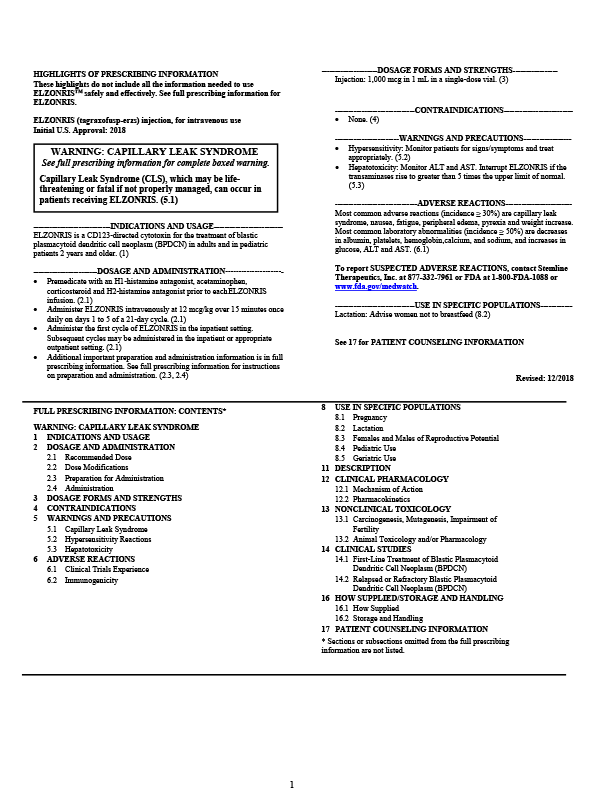Stemline Therapeutics, a Menarini Group Company, is committed to keeping you, your staff, and your patients informed about BPDCN and treatment with ELZONRIS. Download any of the useful resources and tools below.
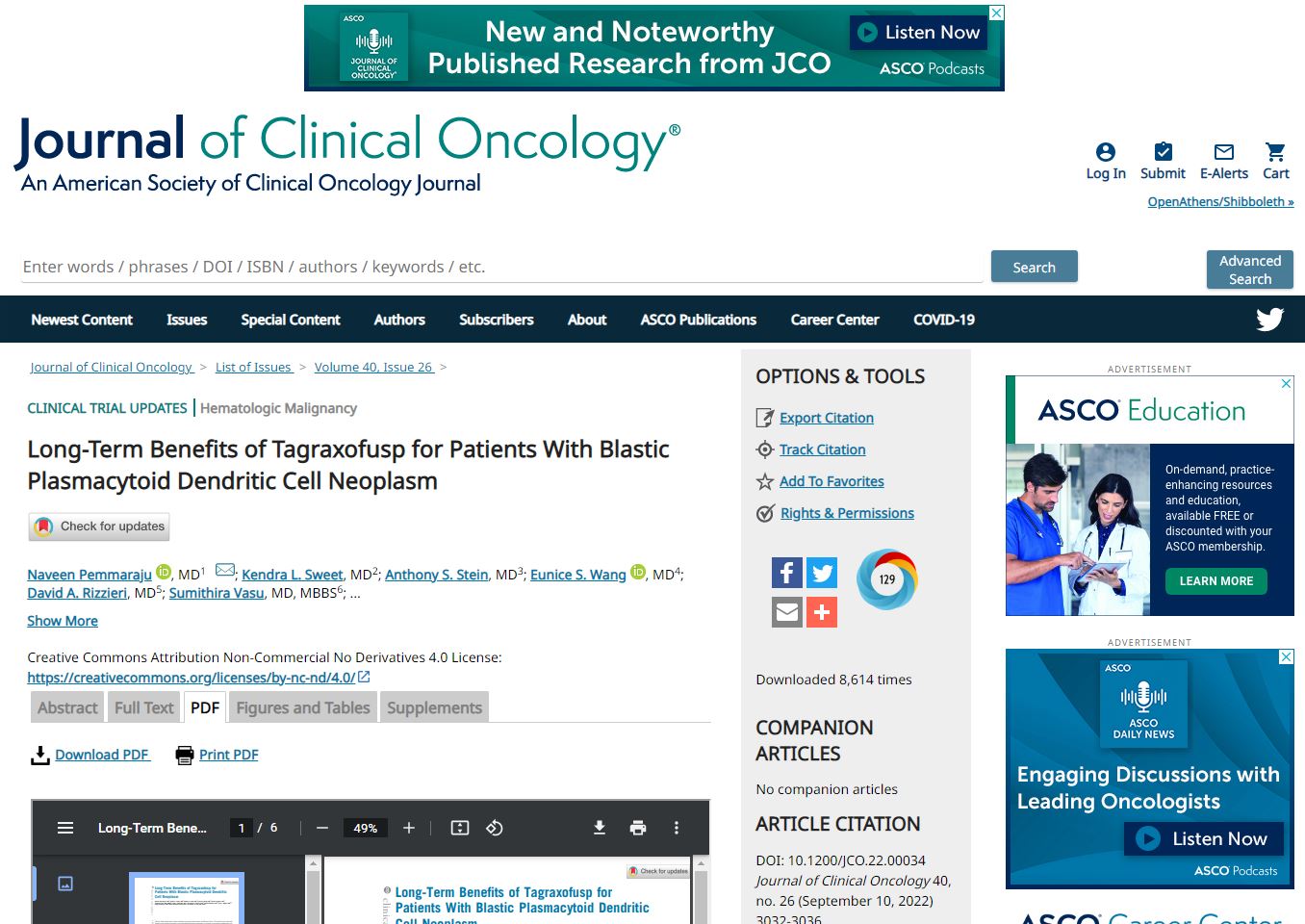
Updated efficacy and safety results for ELZONRIS, published in the Journal of Clinical Oncology in 2022
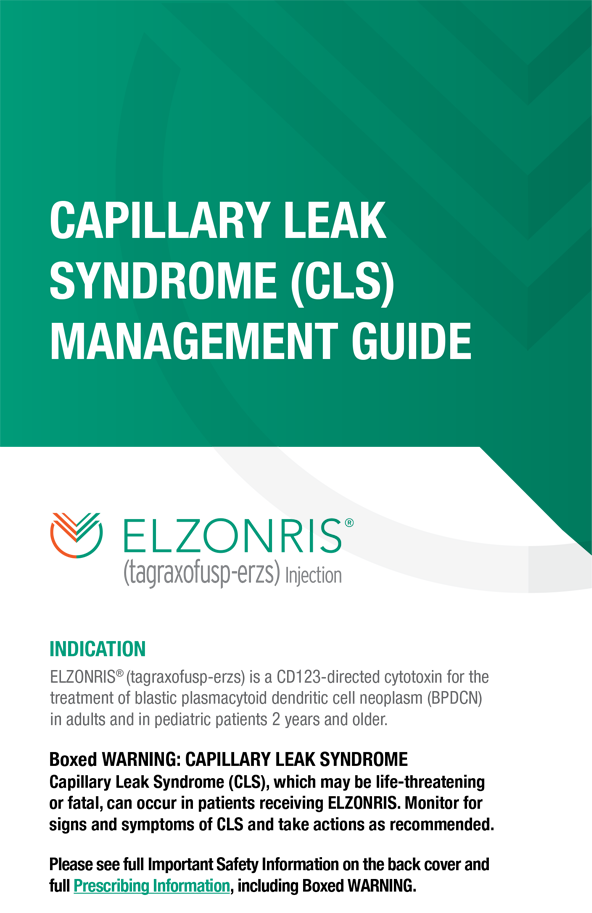
Pocket guide with important information for managing capillary leak syndrome (CLS), a potential side effect of ELZONRIS
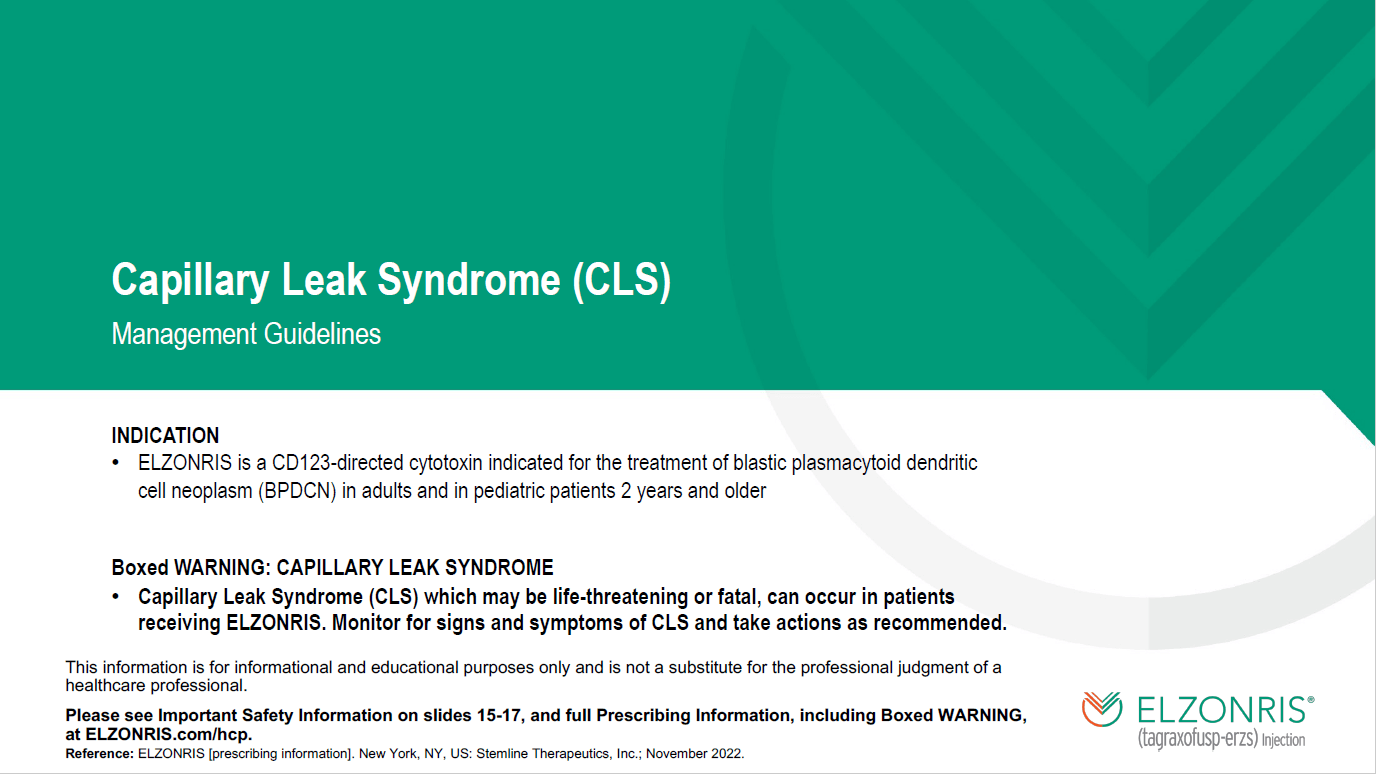
Presentation slides with detailed guidance for managing capillary leak syndrome (CLS), a potential side effect of ELZONRIS
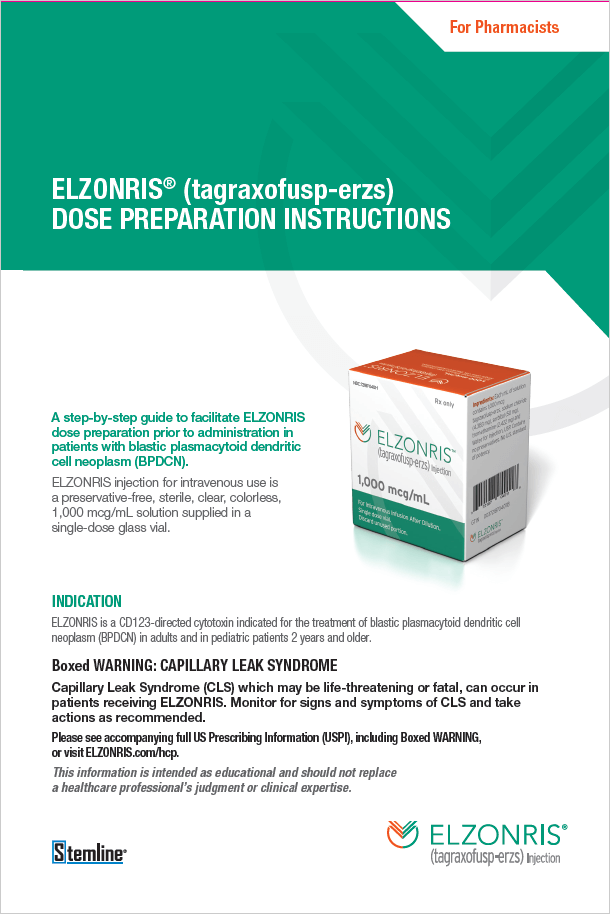
Step-by-step instructions on how to properly prepare ELZONRIS
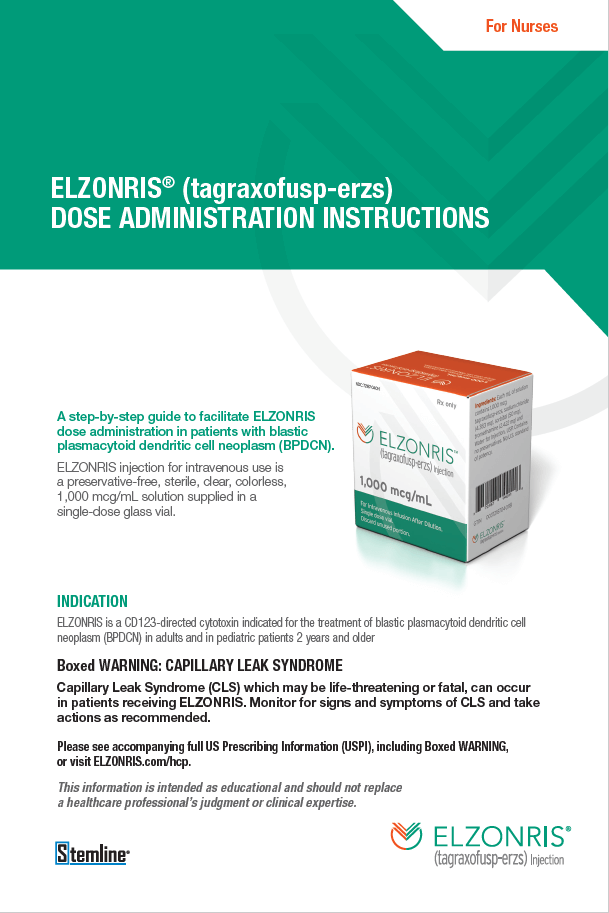
Step-by-step instructions on how to properly administer ELZONRIS
Helps monitor key values throughout treatment with ELZONRIS
The following downloadable resources contain information your patients may find helpful on their treatment journey.
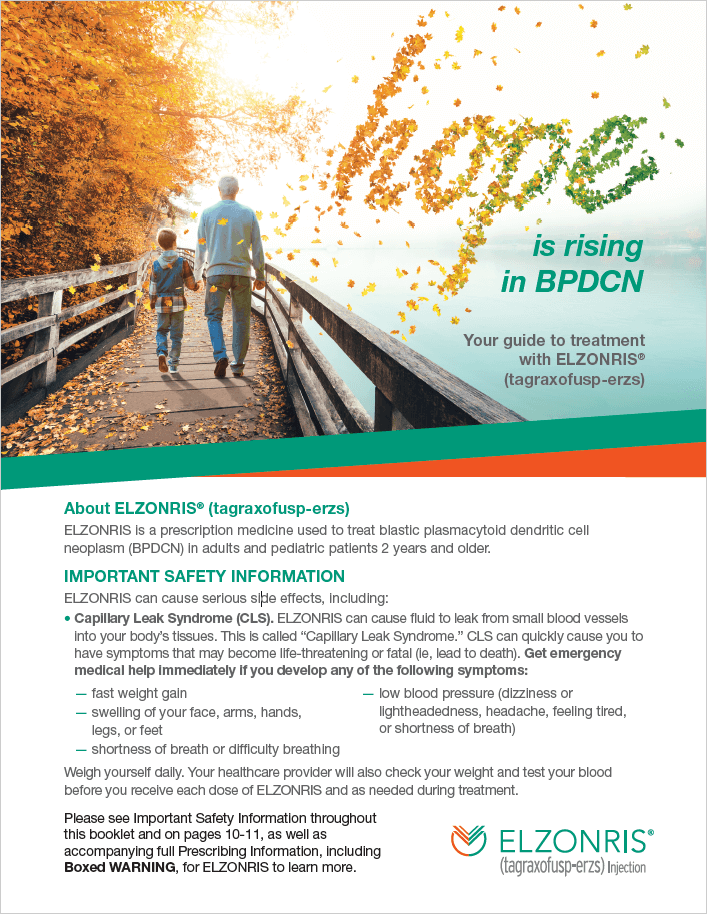
Tells patients about ELZONRIS, how it is dosed, and about side effects patients may experience
A tool that helps patients keep track of symptoms
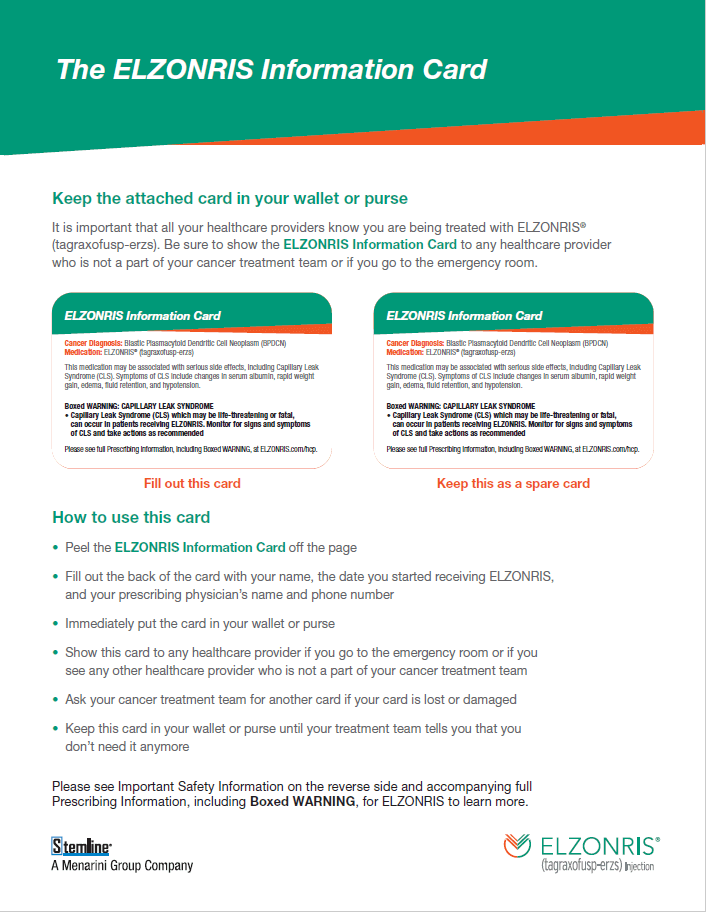
A card for patients to carry in their wallet or purse letting healthcare professionals who are not part of their care team know they are receiving ELZONRIS
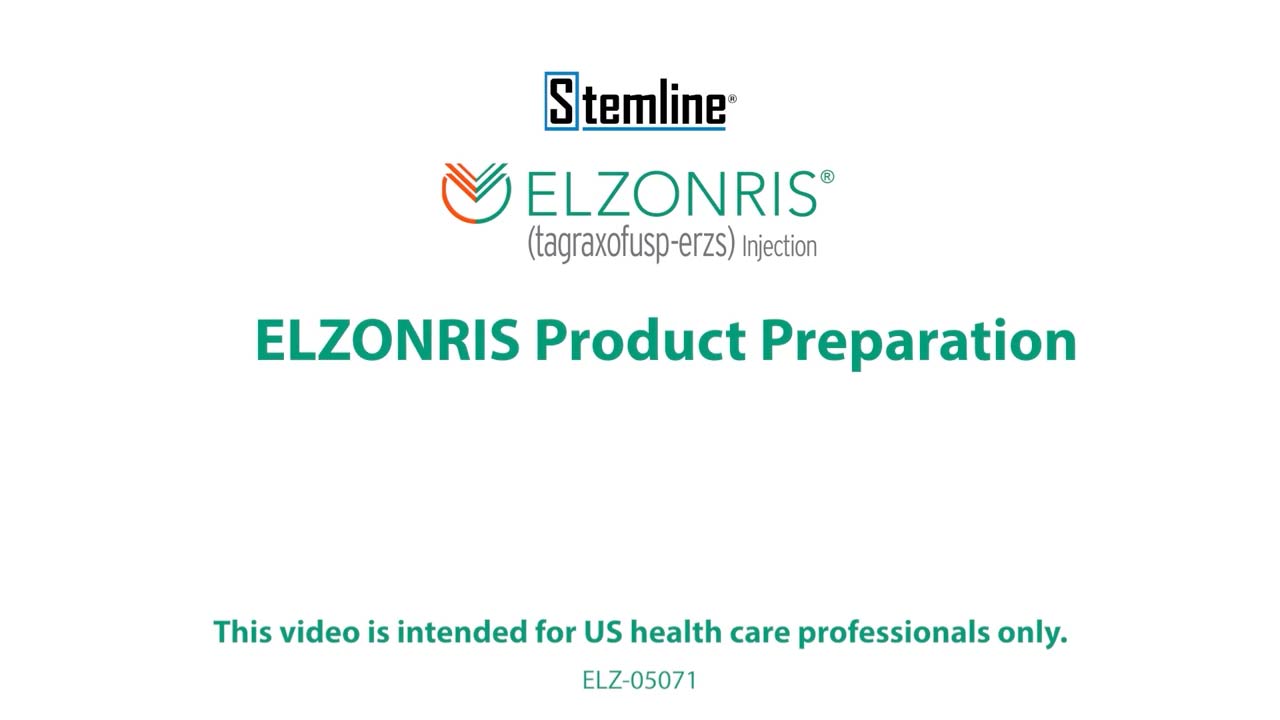
A step-by-step instructional video on how to properly prepare ELZONRIS
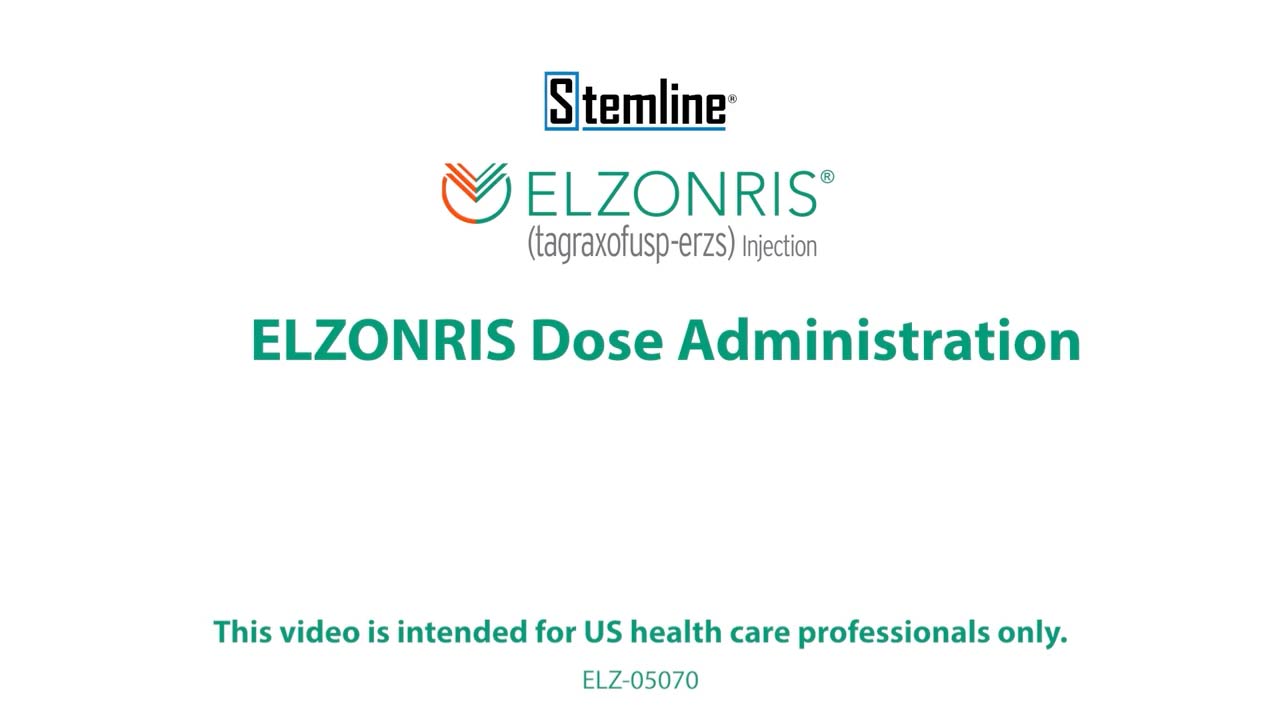
A step-by-step instructional video on how to properly administer ELZONRIS





